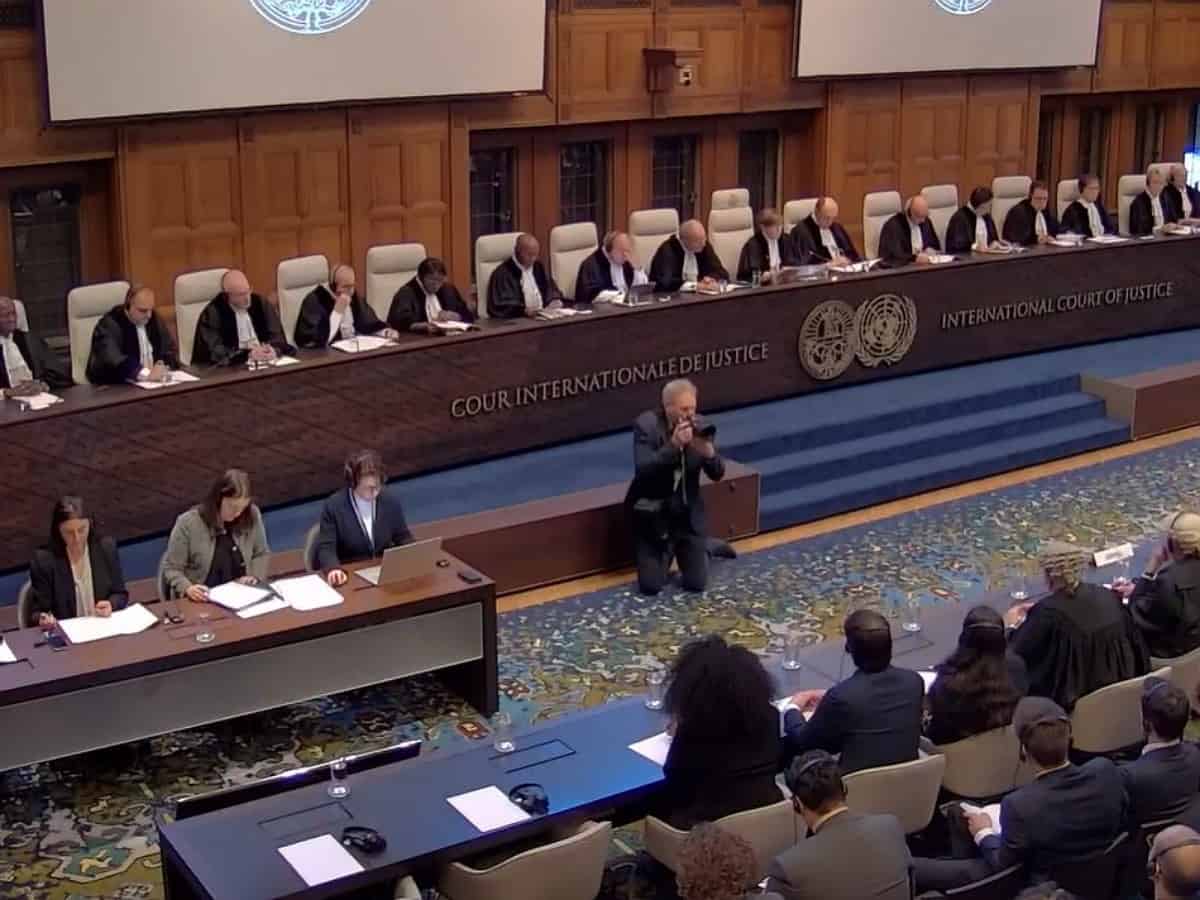
Washington: The Hague-based International Court of Justice (ICJ) verdict on Israel to implement a series of measures aimed at averting genocide in the Gaza is not enforceable but, its more than symbolic, and the legal case brought by South Africa on allegations of genocide will take years to wend through the courts.
The UN legal arm is based out of Hague, the capital of the Netherlands.
A panel of 17 judges at the Hague-based International Court of Justice on Friday ordered Israel to implement a series of measures aimed at averting genocide in the Gaza Strip. The order is part of a wider case brought by South Africa at the UN’s highest court into whether Israel is already committing genocide against Palestinians in Gaza as it fights the war against Hamas.
Even though the ruling is not enforceable, and the actual legal case as to whether Israel is guilty of genocide is expected to take several years to wend its way through the court, the order is more than just symbolic, a political analyst commented on the order in Sundays edition of USA TODAY.
The ICJ’s order, said Palestinian Minister of Foreign Affairs Riyadh Maliki, was a ruling in “favour of humanity and international law.
What’s the impact of ICJ’s ruling on Gaza? Perhaps not a lot immediately in terms of a material change to conditions on the ground, the analyst observed.
South Africa had pleaded before the UN court to issue an emergency order forcing Israel to commit to a cease-fire in Gaza. That didn’t happen. And it also stopped short of calling the Israeli action as genocide. Instead, it ordered Israel to undertake actions to prevent the killing and harming of civilians in Gaza, such as refraining from killing members of a group and not imposing conditions that could prevent women from giving birth. It ordered Israel to prevent and punish public comments that incite genocide.
Legal experts opined that even if the ICJ had ordered Israel halt its military campaign, the court has no formal authority to implement it — and Israel has stated the war ends only when Hamas is defeated, and extracts all of its hostages. “We will continue to do what is necessary to defend our country and defend our people,” Israeli Prime Minister Benjamin Netanyahu said Friday, speaking after the court’s ruling.
Meanwhile, Palestinian lawmaker Mustafa Barghouti said that because of the scale of destruction and on-going fighting in Gaza, “Israel cannot implement ICJ decisions without an immediate and permanent ceasefire.”
What pressure does this put on the US? The ICJ’s ruling brings some potential implications for the United States. Israel’s strongest military and diplomatic ally, besides being the UN’s largest donor country. The US is facing increasing pressure to twist Israel’s arm and stop a war that has killed more than 26,000 Palestinians, mainly civilians, according to the Hamas-run Gaza Health Ministry.
Since the ICJ has no real mechanism to enforce its decisions, it could be voted in the UN Security Council, where members can order economic sanctions or military action against Israel, the USA TODAY observed in its analysis of the verdict.
If a UN Security Council vote does happen, “the Biden administration will once again face the choice of protecting Israel politically by casting a veto, and that, would further isolate the United States, or allowing the Security Council to act and pay a domestic political cost for ‘not standing by Israel’,” said Trita Parsi, the co-founder and executive vice president of the Quincy Institute for Responsible Statecraft, a Washington, D.C. think tank.
Nancy Okail, president and CEO of the Center for International Policy think tank in Washington, D.C., said that the ruling from the ICJ “is more than a legal technicality; it’s about safeguarding human rights on a global scale.”
So far, the White House hasn’t commented on the ICJ’s ruling – leave alone the fact whether it respects the decision. Okail said this sends the wrong message to the world at large asking for immediate ceasefire to prevent collateral damage to civilians in Gaza.
“If we support the creation of a global community based on shared rules rather than simply might makes right, it is absolutely essential that all countries, including the United States, acknowledge the legitimacy of this ruling and take necessary steps in response,” said Okail, in emailed comments.
Where does one go after the ICJ ruling? The ICJ has ordered Israel to report, within a month, back to the court detailing what it’s doing to uphold all the measures within its power to prevent acts of genocide in Gaza. Israel has not said it will comply. In fact, after the ruling some of Israel’s most senior officials such as its Defense Minister Yoav Gallant and Foreign Minister Israel Katz expressed disappointment, besides being defiant.
“The state of Israel does not need to be lectured on morality in order to distinguish between terrorists and the civilian population in Gaza,” Gallant posted to social media. “The IDF and security agencies will continue operating to dismantle the military and governing capabilities of the Hamas terrorist organization.”
Katz said Israel was committed to international law that existed “independently of any ICJ proceedings.” Focus is now on reports suggesting President Joe Biden plans to dispatch CIA Director William J. Burns to the Middle East to help broker a deal between Hamas and Israel that would involve the release of all remaining hostages held in Gaza and the longest cessation of hostilities since the war began last year.



